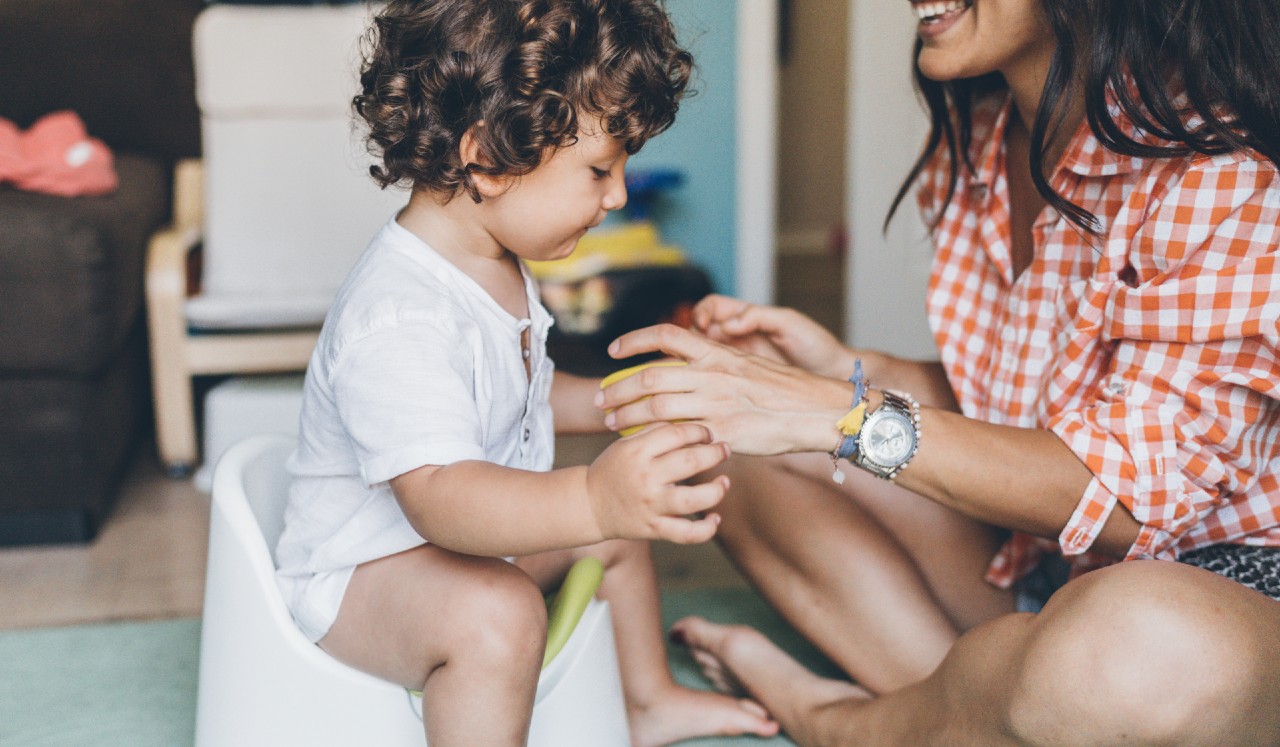You may be excited—and a bit anxious—when you help your toddler transition from diapers to using a toilet on their own. While there may be some accidents along the way, rest assured that you and your child will get through it together.
“Each child is different, and that’s OK,” says Dr. Alexis Monique Canlas, DO, pediatrician at Children’s Memorial Hermann Pediatrics in West University. “Together, you can enjoy the potty-training journey.”
Dr. Canlas helps to answer questions for parents who are about to make the potty-training voyage with their child:
Q. What is the average age to potty train?
The average age for potty training is two to three years of age. Most children are potty trained by age four.
Q. What are signs that your child is ready?
The signs that your child is ready to potty train are when they can sense the urge to go, when they understand what that feeling (urge) means and when they are able to verbalize that they need help to make it to the toilet and actually go.
Q. What are different approaches to getting started?
There are many different approaches to start potty training, and you do not have to choose just one plan. You can choose to try different plans and have a mix of various strategies to help your child learn how to potty train.
The first step is to pick a potty (include your child in the decision-making process) and bring the potty home. Some children learn through imitation, so you as the parent or older siblings can act as role models for a potty-training child. You also can read a book to the child about potty training. In addition, you can ask your little one every two hours if they need to go. Moreover, you can keep a reward chart with stickers as positive reinforcements to encourage the behavior.
Q. Are there different stages to training?
Yes. The different stages are toilet play (pretending to use a toilet, usually with clothes on), toilet practice (practicing pulling clothes off and on, squatting, flushing and hand washing), toilet learning (communicating the need to use the toilet, having a desire to be clean and to use real underwear instead of diapers) and independent toileting (handling the process by themselves).
Q. Can a child regress in potty training?
Yes. Children may regress to an earlier phase of potty training if their routine changes. Such changes can include a mother’s pregnancy, when a sibling is born, a change in the childcare routine (a new sitter, or starting a daycare or preschool program), a major illness or recent death in the family, parents’ marital conflict or divorce, and an upcoming or recent move to a new home.
Q. How can I be encouraging if my child has accidents?
You encourage your child by not yelling, punishing or bringing negative attention to the accident. Instead, speak to the child calmly, be positive and stay consistent in a routine. Also invite your child to help with the cleanup, but not as a punishment. Continue to observe your child and their actions and stay involved in the potty-training process.
Q. Do boys and girls experience different challenges when learning?
Boys and girls may experience different challenges when learning, but keep in mind that every child, regardless of gender, is different. Try not to compare your child’s journey to another child’s. Boys sometimes start later and take longer to potty train than girls and they may need help learning how to aim their urine stream in the toilet. Girls should be taught to wipe from front to back to lower the risk of urinary tract infections.
Q. When should you call your pediatrician?
I strongly recommend seeking the advice of your child’s pediatrician: if your child is four years old or older and still not potty trained; if your child was once potty trained and starts having accidents again; or if there are any worrisome changes in your child’s urination. Such changes could include how much and how often your child urinates, urinating becomes painful or blood appears in their urine.


